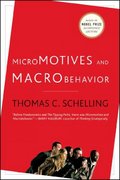Question
Imagine that the private marginal benefit to a steel firm for producing Q tons of steel is 10Q/4. The private marginal cost of producing Q
Imagine that the private marginal benefit to a steel firm for producing Q tons of steel is 10Q/4. The private marginal cost of producing Q tons of steel is constant at $4. Each ton of steel produced by the firm is associated with pollution that affects downstream activities. Specifically, the marginal external damage imposed on downstream groups is $Q/2.
(a) Sketch the following curves... marginal private benefit (MP B), marginal private cost (MC), marginal external damage (MED) and marginal social cost (MSC)
. (b) With no government intervention, how much Q is produced by the steel firm? Identify this point on your graph.
(c) What is the socially efficient level of production? Identify this point on your graph.
(d) Imagine that the steel firm and the downstream group engage in Coasian bargaining. Explain the offers that the downstream group would make and the steel firm would accept.
(e) If there are no bargaining costs, what will be the bargaining outcome (how many units of steel will the firm agree to produce)?
(f) If the payments cannot vary per unit, what will be the total payment that the downstream group makes to the steel firm in the Coasian outcome? Are the two sides better off? Explain why or why not.
(g) Alternatively, the government can intervene. What is the Pigouvian tax that would lead to the efficient level of production? Explain the logic of Pigouvian corrective policy. (h) How much revenue would the tax raise?
Step by Step Solution
There are 3 Steps involved in it
Step: 1

Get Instant Access to Expert-Tailored Solutions
See step-by-step solutions with expert insights and AI powered tools for academic success
Step: 2

Step: 3

Ace Your Homework with AI
Get the answers you need in no time with our AI-driven, step-by-step assistance
Get Started


